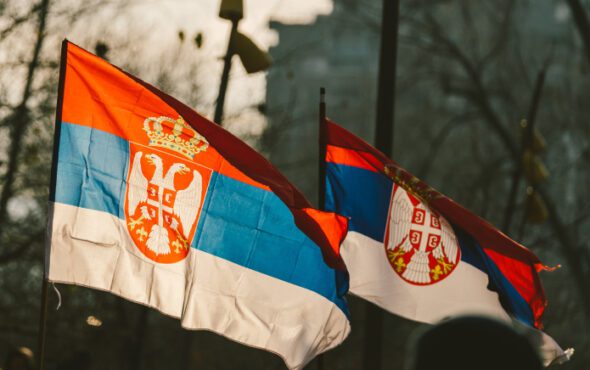
Serbian police have officially banned the EuroPride march route due to mass anti-LGBTQ+ protests and apparent “security concerns”.
The event takes place in a different European city each year.
The celebration has travelled across the continent, from London to Madrid, Amsterdam, Berlin, Rome, Paris, and Manchester.
Belgrade was this year’s location, with the event set to take place on Saturday 17 September.
The city was chosen in a bid to gain Serbia membership to the European Union.
However, the event was under strain by anti-LGBTQ+ and religious protesters in the region, who argued that they were “saving children” and “protecting family values”.
The march was led by clergy from the Serbian Orthodox Church.
Pride will never be canceled. We stand united with our partners, friends, family, and the #LGBTQIA+ community worldwide!#EuroPride #EPOA #Belgrade #EuroPride2022 #EuroPrideBelgrade #EuroPrideBelgrade2022 #Belgrade2022 #Pride #Europe #InterPride @EuroPride @belgradepride pic.twitter.com/VTDQnzoavb
— InterPride (@InterPride) September 13, 2022
Several weeks ago, Serbian president Aleksandar Vučić stated that the event would be put on hold indefinitely due to “security concerns”.
On 13 September, police announced the EuroPride march route has been banned altogether.
Protests have occurred across Belgrade following the announcement.
The European Parliament’s Intergroup on LGBTI rights wrote a statement to Serbian leadership, and announced its disagreement with the ban.
Co-chair of the LGBTI group, Terry Reintke MEP stated: “We regret the decision taken by the Serbian police to ban the route of the EuroPride march.”
“We have been in constant contact in the last weeks with the Serbian authorities calling for political willingness in finding a solution that ensures all demonstrators’ security.”
The statement concluded: “We insist that all efforts must be employed to find a compromise solution.”
It was argued that president Vučić did not have the authority to cancel a continent-wide event.
The ban of the march may have jeopardised Serbia’s bid to join the EU, as it would be a violation of commitment to the European Convention of Human Rights.
It’s unknown if the ban of EuroPride will impact ongoing negotiations.



